When I was a kid in the 1970s, I attended a Catholic grammar school in my hometown of Syracuse, New York. For eight years, the nuns pounded their yardsticks on the classroom floors, drilling their pupils on the Ten Commandments, the Sacraments, and the Corporal and Spiritual Works of Mercy. My classmates and I prayed aloud for our Special Intentions at the start of each school day (please help my dog who is sick), braved the terrors of the confessional booth (Father, I lied three times and called my sister a bad word), and egged each other on as we did our best to give up eating candy and watching Laverne and Shirley for Lent.
My parents were old-school Catholic. My mother came from a church-going clan of Irish immigrants, and my father was raised in a working-class German family that produced several
religious vocations. Every Sunday morning, my mom and dad took me and my three siblings to Mass, and we also attended on the various Holy Days of Obligation throughout the year. We abstained from eating meat on Fridays, got our foreheads smudged on Ash Wednesday, and had our throats blessed with candles (unlit!) on the Feast Day of St. Blaise. The nuns at school taught us to believe in Heaven, Hell, and Purgatory, as well as the weekly necessity of going to Confession, to receive absolution for our sins.
Compared with my friends’ parents, mine were quite strict. I wasn’t allowed to stay out late or go on a car dates with boys. My mother even policed what I watched on TV. She considered soap operas and most prime time television fare to be “immoral,” so I missed out on a big chunk of seventies pop culture. She even forbade me to watch Happy Days after she poked her head into the den one evening and saw Richie Cunningham making out with a girl at a party—with the lights off!
My mother was passionate about her work as a nurse, and I decided to follow her into the profession. In a college psychology course, I was introduced to the concept of the “family of origin,” and the profound impact it has on the choices we make as adults. The basic idea is this: the family we grow up in teaches us its own unique set of values—how to express emotion, how to communicate, how to resolve conflict. We carry those dynamics with us into our adulthood, and those learned modes of behavior have a far-reaching influence on our future interpersonal relationships, particularly in marriage.
When I began writing my first novel, Absolution, my Catholic upbringing was key to the creation of my main character, an earnest young wife and mother who walks a tightrope between the traditional values she was raised with and a marriage that threatens to destroy her. I took the positive aspects of Catholic marriage and exaggerated their polar opposites. My purpose was to show life as it really is, when one’s best intentions are sabotaged by indifference and abuse. And of course, I threw in a hefty dose of Catholic guilt for my heroine to struggle with.
The characters in my second novel, Down a Bad Road, veer even further from the path of righteousness. The story involves a love triangle that plays out between a married woman, a lifelong bachelor, and a jealous ex-girlfriend. The scenario isn’t exactly a wholesome one, but these situations do occur in real life. It isn’t the kind of story that the more religious members of my family would probably care to read, and that does make me feel somewhat uncomfortable. However, it is my story, and I’m proud of what I’ve created. Life doesn’t unfold in the rose-tinted hues of my mother’s straight-laced 1950s upbringing. In reality, life is messy, difficult, and occasionally dissolute. My advice for aspiring writers is this: non-stop happiness doesn’t make for compelling stories, so don’t be afraid to tell it like it is.
***************************************************
If you enjoyed Regina's article, then be sure to check out her new book Down a Bad Road
Add Down a Bad Road to your Goodreads TBR list or purchase a copy at Amazon, Barnes & Noble, or Bookshop.org.
Regina and her book are also on the Women On Writing blog tour over at The Muffin. Be sure to check out the tour and all of the exciting stops
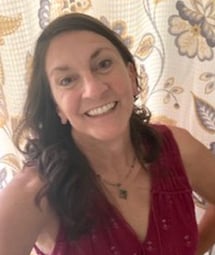 Author bio: Regina Buttner is a registered nurse-turned-writer who was raised in beautiful upstate New York, where she spent many happy years exploring the winding back roads and scenic hiking trails of the Adirondack mountain region. She recently traded the snowy northern winters for the tropical breezes of the Sunshine State, where her favorite pastimes are kayaking among the mangroves, strolling the gorgeous beaches, and attempting to teach tricks to her boisterous corgi.
Author bio: Regina Buttner is a registered nurse-turned-writer who was raised in beautiful upstate New York, where she spent many happy years exploring the winding back roads and scenic hiking trails of the Adirondack mountain region. She recently traded the snowy northern winters for the tropical breezes of the Sunshine State, where her favorite pastimes are kayaking among the mangroves, strolling the gorgeous beaches, and attempting to teach tricks to her boisterous corgi.
Learn more on Regina's website or follow her on Instagram, Facebook, Goodreads or BookBub.
Journaling Power Revolution Series

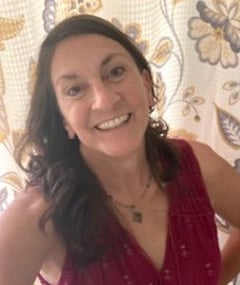
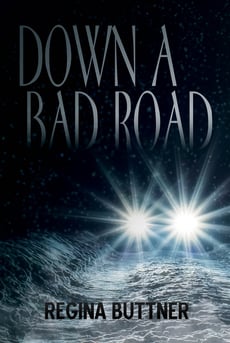
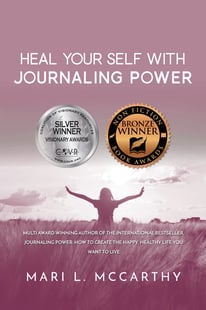
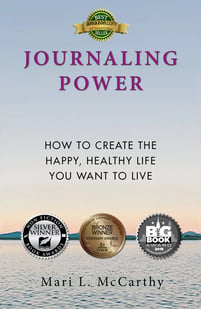
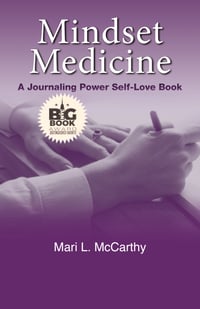
Leave Comment